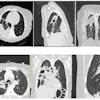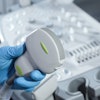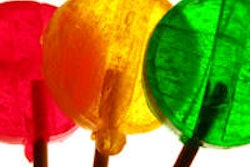Delta Dental is funding research to determine whether sugarless lollipops containing licorice extract can reduce tooth decay. The product will be tested on nursing home residents and preschool students.
"Despite great advances, dental decay is one of the most common childhood diseases, with more than half of children ages 5 to 9 having had at least one cavity or filling," said Jed Jacobson, D.D.S., M.S., M.P.H., chief science officer at Delta Dental in a press release. "At the other end of the spectrum, the oral health of many U.S. elderly nursing home residents can be very poor because disabilities make self-care difficult and access to professional dental treatment may be limited."
The first study, which started in August, is looking at 40 nursing home patients. Half will receive herbal lollipops and the other half will receive placebos for three weeks. The second study, scheduled to start this week, will focus on 100 preschool students ages 3-5 who will receive a lollipop for 10 minutes twice daily for three weeks.
The orange-flavored, sugarless lollipops, manufactured by Dr. John's Candies of Grand Rapids, MI, were developed using FDA-approved materials by Dr. Wenyuan Shi, a microbiologist at the University of California, Los Angeles, and C3 Jian, a research and development company in California. The lollipops contain extract of licorice root (Glycyrrhiza uralensis), which targets and is thought to kill Streptococcus mutans (S. mutans) and Lactobacillus casei -- the bacteria responsible for tooth decay.
Researchers will use a saliva test to measure the amount of S. mutans and Lactobacillus casei in the patients' mouths before and during lollipop use and for several weeks afterward.
"If successful, this would be a huge step forward in the dental and general health of our nursing home patients as well as their quality of life," said John Voytas, M.D., a geriatric medicine specialist who is leading the research at the nursing homes, in a press release. "It also would reduce costs associated with dental problems such as cavities and more serious conditions."



















